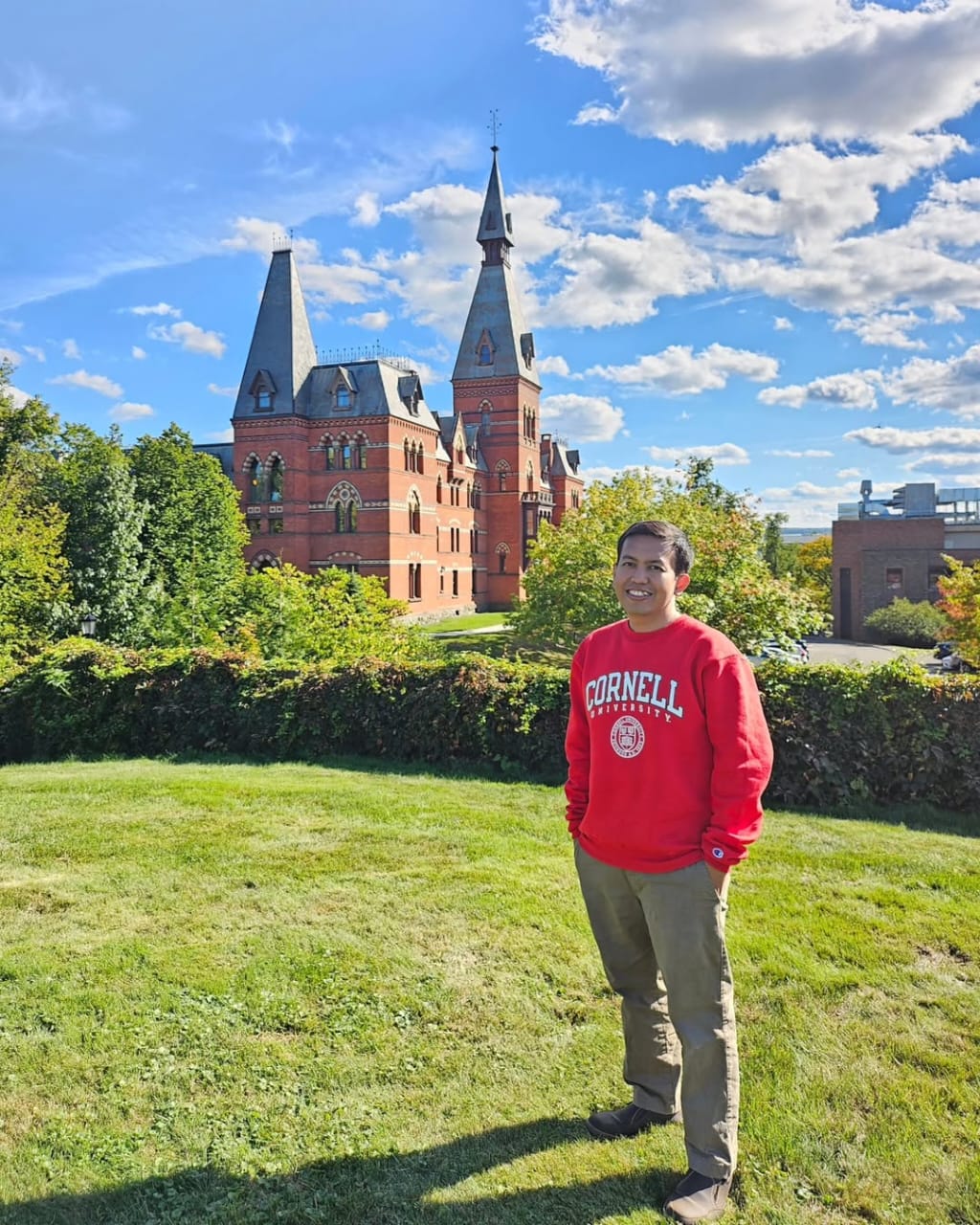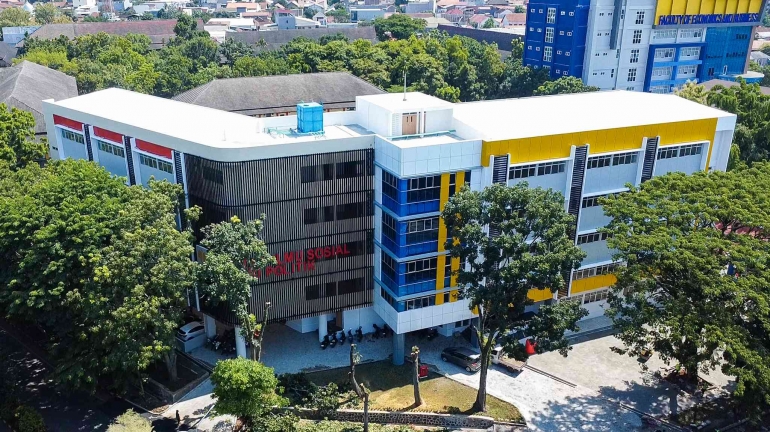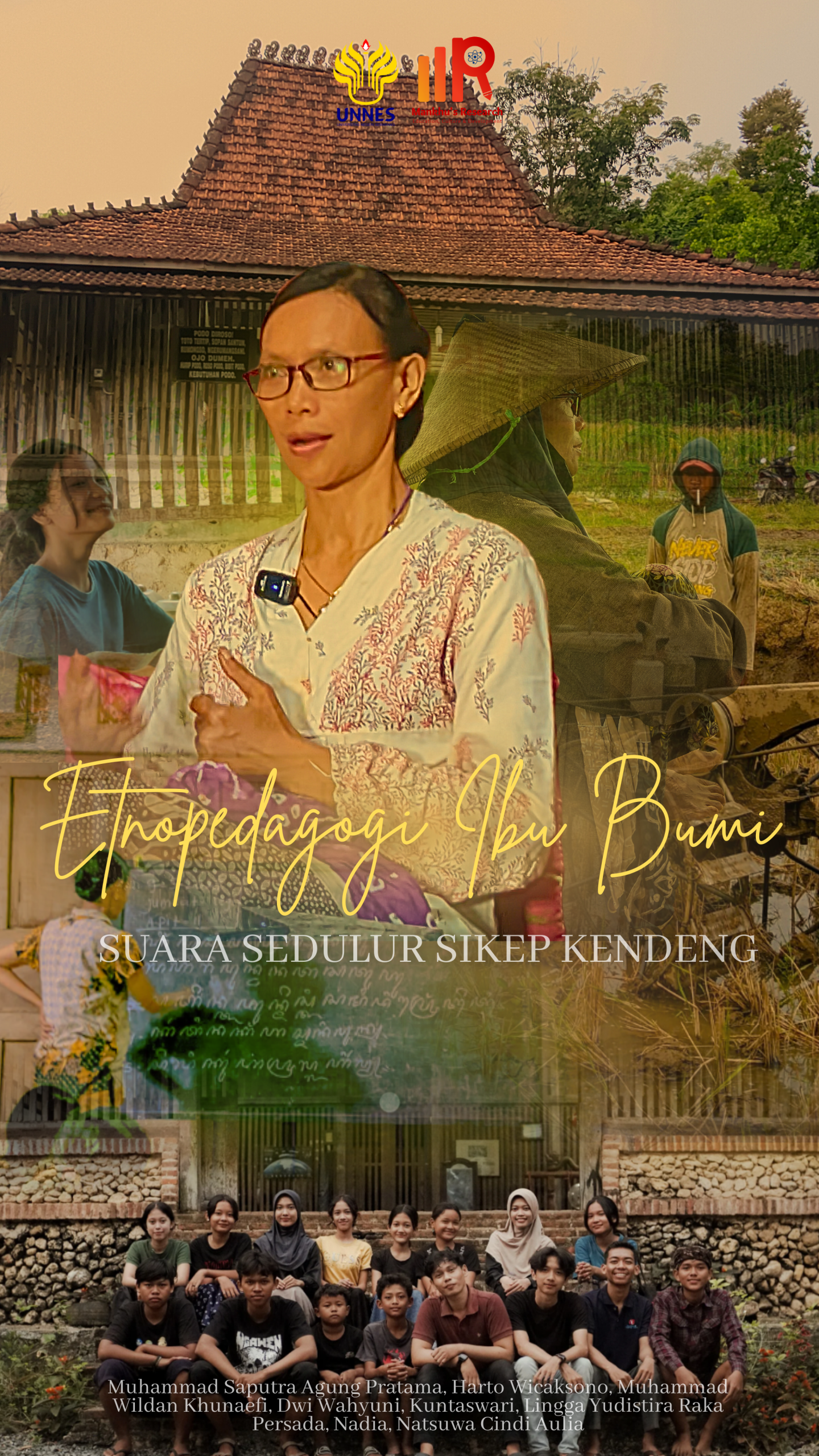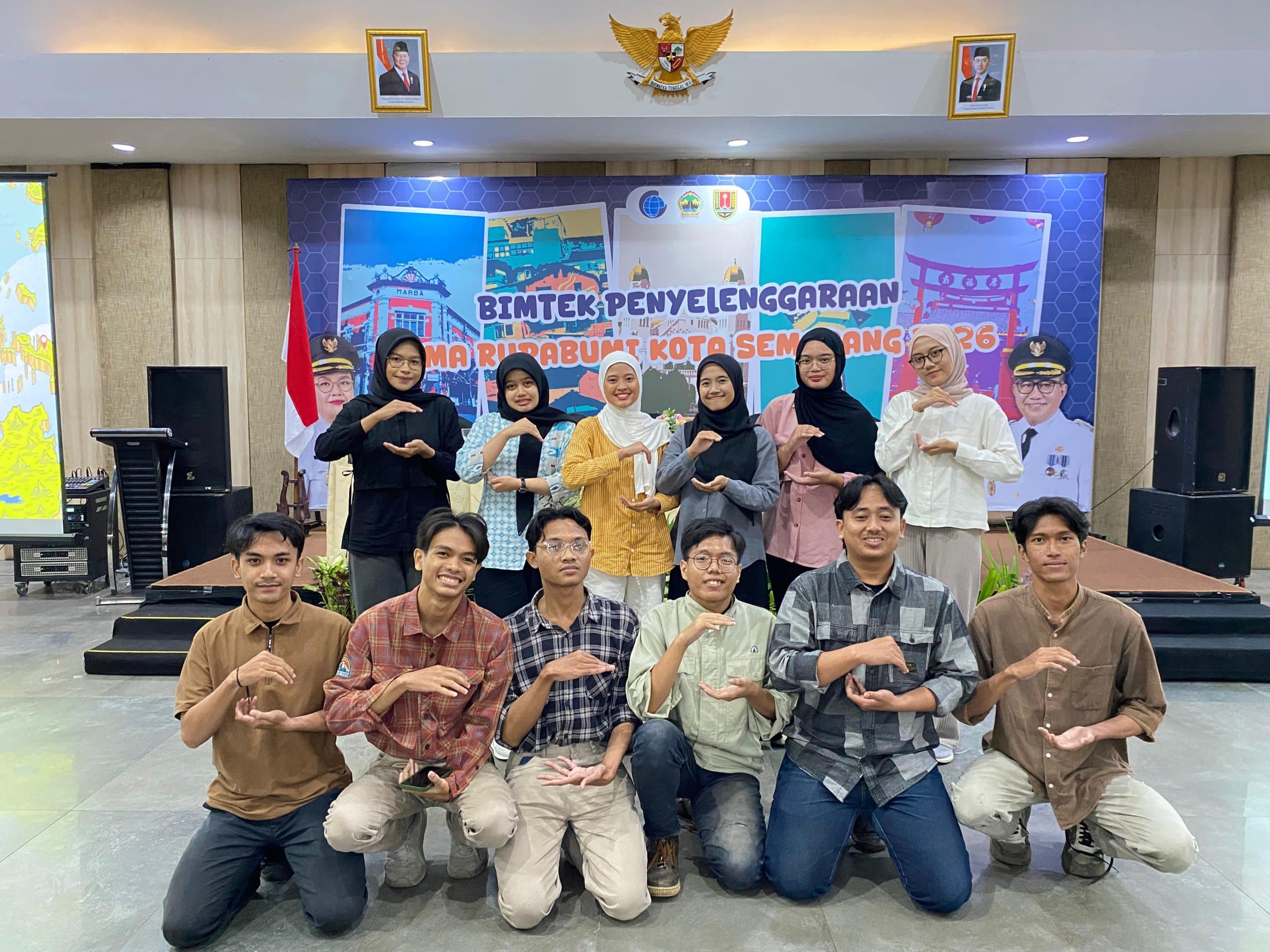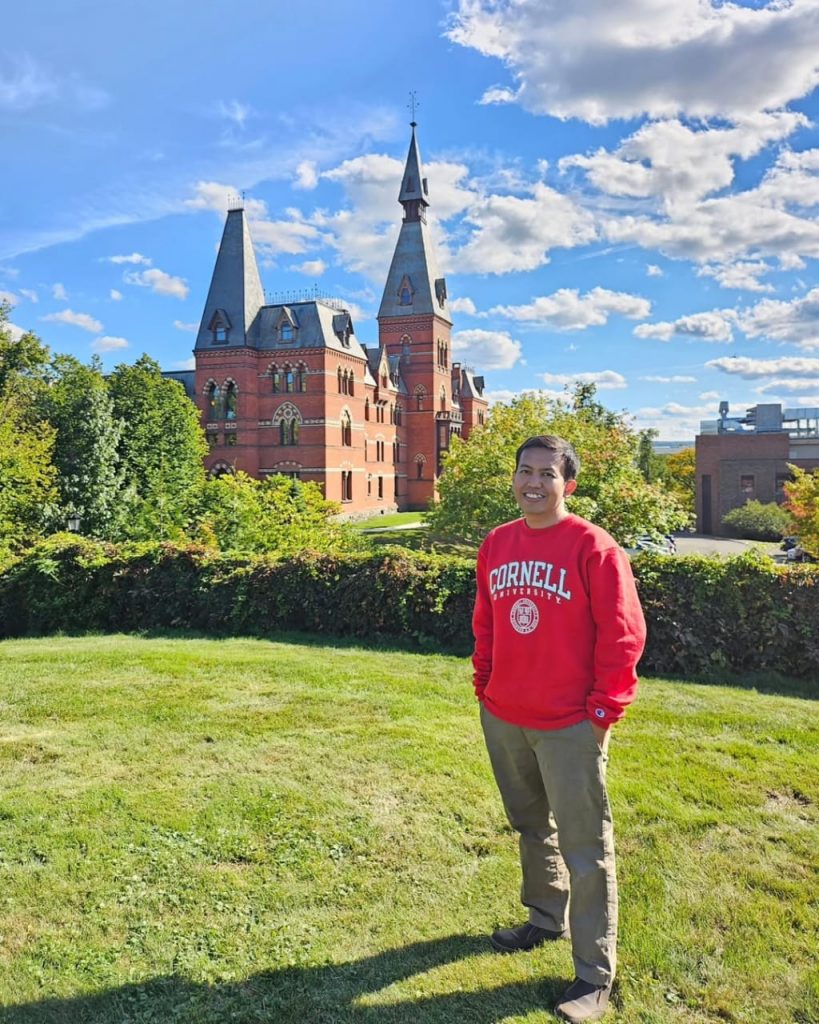
Muzakki Bashori meneliti bahasa Jawa di Cornell University, New York Amerika Serikat, 3 September 2024- 23 Februari 2025. (Sumber: Dok. Pribadi).
Suhu ekstrem di Ithaca, New York, Amerika Serikat Desember 2024 tidak membekukan semangat Muzakki Bashori dalam meneliti bahasa Jawa. Di bawah suhu hingga minus 15 derajat celcius Dosen Ilmu Sejarah FISIP UNNES ini mencari cara untuk mencegah agar bahasa jawa tidak punah.
Data dari Ethnologue menunjukkan bahwa jumlah penutur bahasa Jawa mengalami penurunan drastis. Pada tahun 2018, jumlah penutur bahasa Jawa tercatat sebanyak 84 juta orang “ Namun, pada tahun 2024, jumlah ini merosot menjadi 68 juta orang, mengalami penurunan sebanyak 16 juta dalam kurun waktu enam tahun,” Kata Muzakki di Gedung C8, FISIP UNNES, Sekaran Semarang, Rabu, 19 Maret, 2025.
Lulusan S3 Linguistik Terapan dari Radboud University Nijmegen Belanda ini memaparkan ancaman terhadap bahasa Jawa ini mencerminkan dinamika persaingan bahasa yang semakin ketat di Indonesia. Terdapat tiga domain bahasa utama yang saling berebut dominasi, yaitu bahasa nasional (Bahasa Indonesia), bahasa lokal/daerah, dan bahasa asing, terutama bahasa Inggris.
Menurut Ethnologue, jumlah penutur Bahasa Indonesia sebagai bahasa pertama terus meningkat dari sekitar 23 juta pada tahun 2018 menjadi 43 juta pada tahun 2019. Muzakki menambahkan dominasi Bahasa Indonesia, mobilitas sosial, dan globalisasi menjadi faktor utama yang mendorong pergeseran bahasa.
Banyak generasi muda yang lebih memilih menggunakan Bahasa Indonesia dan bahasa Inggris dalam kehidupan sehari-hari, baik di lingkungan pendidikan maupun dalam interaksi sosial. Sistem bahasa yang semakin terpusat pada Bahasa Indonesia dan bahasa asing ini semakin mempersempit ruang bagi bahasa Jawa dan bahasa daerah lainnya untuk bertahan.
Muzakki yang lahir di Kudus Jawa Tengah 35 tahun lalu ini menjalani riset di Cornell University. Selama di sana dia dibimbing oleh dua orang Supervisor yaitu Professor Abigail C. Cohn, dan Associate Professor Maya R Abtahian.
Kedua supervisor itu memberikan pandangan bahwa banyaknya penutur bahasa tidak menjamin bahasa tersebut tidak akan punah. Selain bimbingan dengan supervisor Muzakki juga memanfaatkan fasilitas di Cornell University untuk meneliti seperti membaca koleksi buku yang ada di perpustakaan milik universitas peringkat 16 versi QS World Ranking.
Untuk mencegah kepunahan bahasa Jawa, berbagai upaya revitalisasi mulai digalakkan. Beberapa langkah yang dapat dilakukan antara lain. Implementasi kebijakan bahasa daerah yang lebih kuat.
Penguatan program berbasis komunitas untuk menghidupkan kembali penggunaan bahasa Jawa dalam kehidupan sehari-hari. Pengembangan media pembelajaran berbasis digital untuk menarik minat generasi muda dalam mempelajari dan menggunakan bahasa Jawa.
Meskipun ancaman kepunahan bahasa Jawa semakin nyata, masih ada harapan untuk mempertahankan keberadaannya. Dibutuhkan sinergi antara pemerintah, lembaga pendidikan, komunitas budaya, dan masyarakat luas untuk menjaga kelangsungan bahasa Jawa agar tetap menjadi bagian dari identitas bangsa Indonesia.
Wakil Dekan Tiga FISIP UNNES Puji Lestari mengapresiasi penelitian yang dilakukan oleh Muzakki Bashori. “ Saya mengharapkan dosen-dosen muda juga dapat mengikuti Muzakki, untuk melakukan riset hingga ke luar negeri,” ucapnya.
Muzakki menjalani penelitian di Cornell University selama enam bulan dari tanggal tiga September 2024 hingga 24 Februari 2025. Selama penelitian di Amerika, bapak satu anak ini mendapatkan beasiswa program Fulbright Visiting Scholar dari American Indonesian Exchange Foundation (AMINEF).

